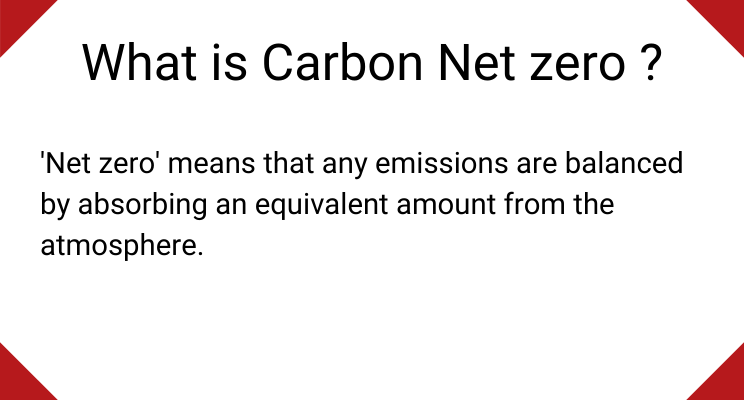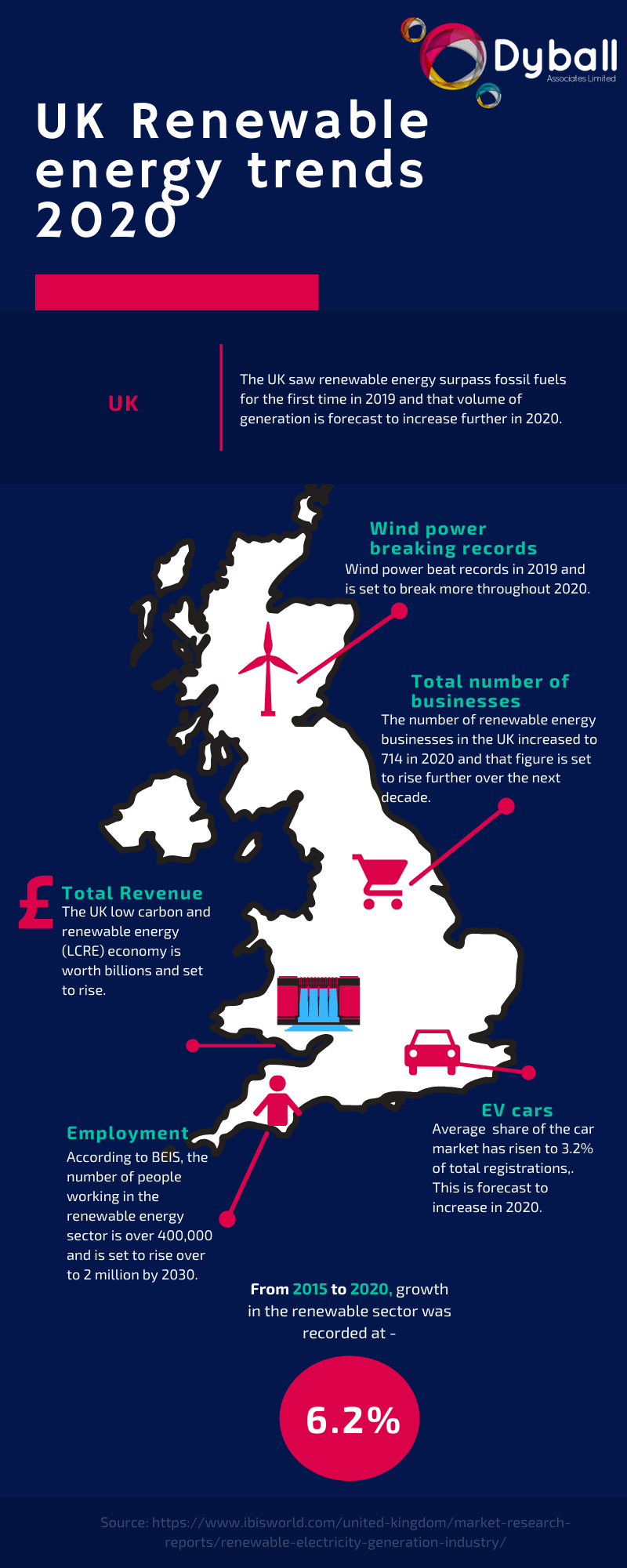2020 Renewable Energy Market Trends
With the UK government pushing for net zero carbon emissions and Ofgem recently announcing its plans to decarbonise the economy, Renewable energy is only going to grow more important. We look at the trends in the Renewable energy sector that companies are likely to follow in 2020.
Environmental concerns in the headlines
Thanks to the disruptive and well publicised efforts of the likes of Greta Thunberg and Extinction Rebellion , the issue of climate change was thrust into the spotlight in 2019. Whether the campaigns of disrupting the publics everyday lives or berating world leaders were truly effective remains to be seen, but it has increased discussion on how the UK can clean up its act.
Public concern about the environment is at a high, which is encouraging the uptake of renewable power. It’s also had a significant impact on the government who has pledged to hit a target of net zero carbon by 2050.
Whether support for such pledges retains public support remains to be seen, however, as there is a significant backlash occurring against the plans set out by Ofgem and the government to replace all gas heating by 2035 and to ban the sale of diesel, petrol and hybrid cars.
However, the costs of such plans are likely to be eye wateringly high, not to mention many members of the public will be loathed to scrap their cars or even be able to afford to pay to replace their vehicles or heating systems.
Where the money comes from to fund such plans will be key to winning the support of the public.
UK Renewable Energy Trends 2020
A new era of competition
More and more companies are seeking to enter the renewable energy market as the race is on to develop and invent new technologies. Innovation and new technologies are needed to realistically hit the targets proposed by the government.
For energy supply companies’ competition between them to attract new customers will intensify as each one will no doubt introduce their own form of ‘green tariffs’.
A clampdown by Ofgem on ‘greenwashing’ where a company exaggerates the amount of energy coming from renewable sources is likely to force suppliers to increase their use of genuine renewable sources.
Energy suppliers that provide the best value green tariffs are likely to gain a competitive edge over their rivals and we can expect to see more of them being introduced and advertised. As well as green tariffs, energy suppliers are likely to introduce more competitive tariffs aimed specifically at electric vehicle owners.
The government’s push for putting an extra 10 million EVs on the nation’s roads is likely to see a further increase in the number being purchased.
UK Renewable Trends 2020
Technological innovation
The recently announced plans to replace all gas boilers from people’s homes and ban the sale of new petrol, diesel and hybrid cars have been criticised for their unfeasibility at least for now.
Introducing electric heating into millions of homes and the need to install tens of millions new electric vehicle charging points will see demand for electricity skyrocket and put immense pressure on an already struggling energy grid.
The need for new technology to handle these new demands will likely see immense sums of cash being poured into research and development projects. Businesses will find opportunities to innovate and take advantage of this heightened demand.
Opportunities in new renewable energy sources
More renewable energy sources such as offshore wind farms andhydroelectric plants will have to be developed and infrastructure built if thegovernment’s plans are to be realised, which means the renewables sector will seean increase in jobs and opportunities for businesses.
According to the National Grid, the UK will need to generate anextra 100GW of electricity to hit the 2050 net zero carbon target and overalldemand will climb to 491 terawatt-hours.
To do this there will need to be hugeinvestment in renewables and that investment is likely to start rising sharply throughout2020.
Energy suppliers and otherbusinesses that prove they are taking the issue of climate change seriously canalso use their stance to entice new employees who want to work for companies dedicatedto creating a better future and not those that are perceived to be ‘harming’the environment.
According to the National Grid study, Building the Net Zero Energy Workforce, the UK needs to add 400,000 new energy jobs to achieve its 2050 goal. Thismeans up to 117,000 new jobs need to be created over the next decade.
Increased focus on collaboration
For the net zero targets to be hit, all areas of the energy sector will need to come together and innovate. This will result in closer collaboration between energy suppliers, distributors, government agencies and technology companies.
Many industries that have traditionally been high polluting will also increase the pace in which they decarbonise providing opportunities for new technologies and innovation that will require closer collaboration with other sectors and industries.
Renewable energy Revenues in 2020
The increased use of cheaper green energy has seen prices fall with investors in renewable energy funds potentially set to see significant losses. The entire sector lost close to £300 million on the news that energy prices are falling.
UK investment analysts have said the double-digit premiums of companies in the £9 billion renewables sector were unsustainable in the face of mounting evidence that growth in carbon-free energy would slash the cost of electricity in the next 20-30 years.
Whilst good news for consumers the fall in energy prices is bad news for investors and could put increased financial pressure on energy suppliers.
Geopolitical tensions in energy producing regions of the world could push prices up. The ongoing standoff between the USA and Iran could be joined by rising tensions between Turkey and the Assad regime over the contested Idlib region in the war-torn Syria.
The ongoing Coronavirus epidemic sweeping China however has resulted in a sharp drop in gas prices due to a fall in demand and already high supply.
Further Reading
What does 2020 hold for the UK Energy Market?
How to start an Electricity Supply Company in the UK
Dyball Associates are proud to help new supply businesses successfully launch in the UK market.
Through our energy market consultancy services, and the software we’ve developed, we’re supporting new UK electricity and gas suppliers get set up and start supplying.
For more information on how to start and manage an energy company, get in touch with Dyball Associates today.
Follow us on Twitter and LinkedIn to keep up to date with the latest news and updates in the energy industry.






